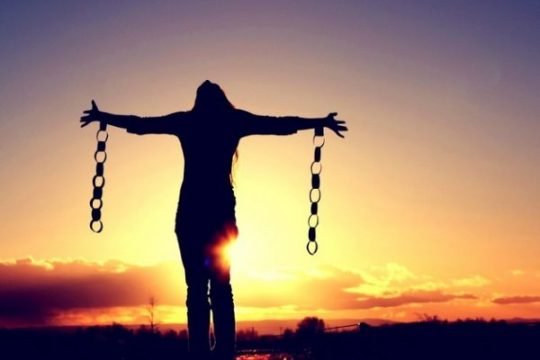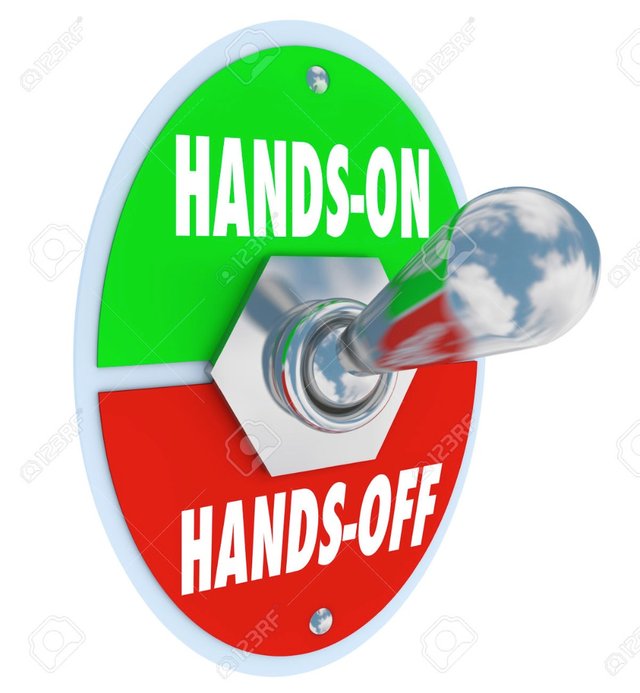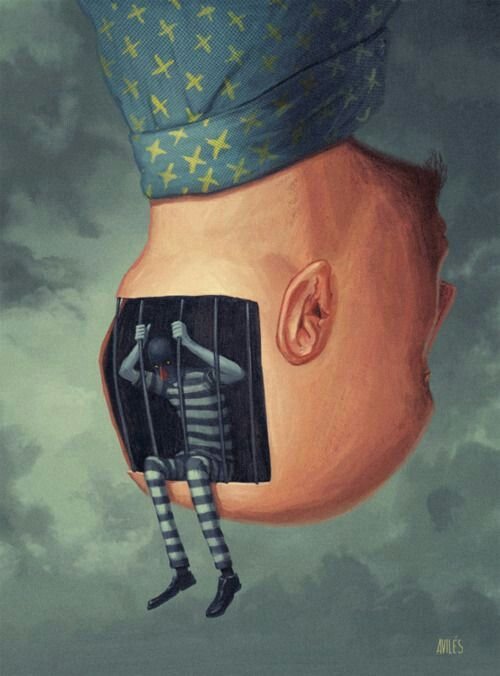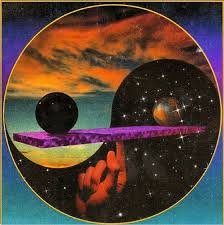FREEDOM: ACHIEVED BY THE POSITIVE, THE NEGATIVE, OR A BIT OF BOTH?

What is freedom? That seems like a simple, straightforward question, but I don’t think I would be sitting here writing this article if that were the case. What one person considers freedom, another might perceive as tyranny. For example, one man might see the police state as freedom in the form of security, while another person might consider the police state a form of tyranny on individual liberty. Getting to the root of what freedom is requires delving into some of the most fundamental philosophical questions, where answers tend to lie in the grey area, as opposed to the black and white.
Libertarianism is a political philosophy that is designed purely around the concept of freedom. In libertarianism, there is a great divide amongst ideological thought all stemming from a fundamental disagreement in the definition of freedom. On one end, there is the belief that freedom is the absence of external forces having any control over you. This type of freedom can be thought of as the freedom “from” approach, and is often referred to as negative liberty. On the other end, is the belief that freedom is the absence of internal limits due to having the power and resources to fulfill ones potential. This type of freedom can be thought of as the “capacity to” approach, and is often referred to as positive liberty.

These two definitions have fundamentally different approaches to economic and governmental structuring. In the belief of negative liberty, less is best. This is a hand’s off approach both economically (whereas markets are completely open with no state interference) and governmentally (whereas the state intervenes in people’s lives as little as possible, if at all). Conversely, having the belief in positive liberty maintains the line of thought that one is only as free as their capacity to fulfill their dreams. This is a more hands-on approach, which aims to collectively use the resources and labor of the community in the best interests of the people by creating an environment where everyone has access to the resources they need. It is said that this brings freedom because the individual now has a greater capacity to be happy.
The thing is, they are both right. Man and environment are one in the same. Man cannot exist without the environment, and therefore man has an internal consciousness of self and an external consciousness, which represents the environment it functions in and shares with everyone else. In that regard, man needs the freedom from external forces so that he may find the internal consciousness of his soul. Yet at the same time, one does not have the capacity to find the internal consciousness without being able to tap into the external consciousness and make it happen. Since the environment is filled with a countless number of beings and forces, being in the proper environment and utilizing it is also key to putting internal happiness into action. For example, just because you have the right to freedom of law doesn’t mean you have the capacity to access everything you want.
Radical negative liberty advocates like anarcho-capitalists will say that in a totally free society, absent of external control, people will get out what they put in and that people are in direct autonomous control of themselves. While radical positive liberty advocates, like anarcho-communists, will stress that you cannot be free without a free environment, and therefore we must work together for the betterment and equality of the whole. They stress that communism is the fulfillment of individualism in that the group frees up the individual, who can then follow his true purpose, while real free market capitalism advocates think the individual has the ability to make himself happy.
Ironically though, they are both wrong at the same time. Having a lack of external controls like laws could sacrifice safety; some could opt towards the option of obtaining resources through force. This could potentially lead to chaos or a build up of oligarchical elites who can dominate the open market through power and force. It could also lead to people acting purely in self interests and allow greed to run rampant. On the flip side, too much positive liberty could lead to groupthink and group coercion, which could result in a monoculture or a corrupt state. When one group gains too much power over another group, individual liberty is often sacrificed and divides begin to surface in society. Also, what if one disagrees with how the resources are being dispersed out according to “needs?”
It is so fascinating how both ideas can go so pleasantly well or so terribly wrong. This seems quite evident when one looks at the intense hatred some have for examples of so-called capitalism, socialism, and communism. Were these ideas even properly implemented to their pure ideological form or were they hijacked? Most likely the former, and maybe that is the problem. However, pure ideology doesn’t usually reflect practical governance.

Maybe, it just means that the answer is somewhere in the middle. This makes some sense since both are definitions within the overall definition of freedom. This is what duality is; the yin and the yang that make the whole. Yin and yang can be thought of as complementary rather than opposing forces that interact to form a dynamic system in which the whole is greater than the assembled parts. Maybe, instead of focusing on the differences, we should start focusing on the similarities, and use our differences so we can feed each other effectively to make a stronger whole. These two concepts actually have a lot in common that people don’t often look at due to perceptual differences in the interpretations of definitions and language.
The concept of freedom is essential to both. They both operate under the notion that individual autonomy is vital in the hopes that it leads to environmental cohesiveness. They both aim for decentralization and horizontal structures in society. They both require constant action and participation to function effectively. Finally, they both are made up of people, and in the end it’s how the people act that will ultimately determine whether either system can be successful or not. A free society of ethical capitalists can be a great thing just like a centrally planned community in which everyone is cared for, can also be beautiful. However, they can both turn into nightmares if acted upon without morals.
So is freedom positive or negative? Well I think we learned that it is both, and isn’t both, at the same time. It’s all in how they are used and applied. Maybe they can both work simultaneously. Socialist ends by market means? Ultimately, the ethical and moral consciousness of both the internal individual and the collective self, will decide whether freedom will truly be achieved or not. You are everything, and everything is you. This is at the heart of it all. Unity in acceptance of duality equals transcendence.
